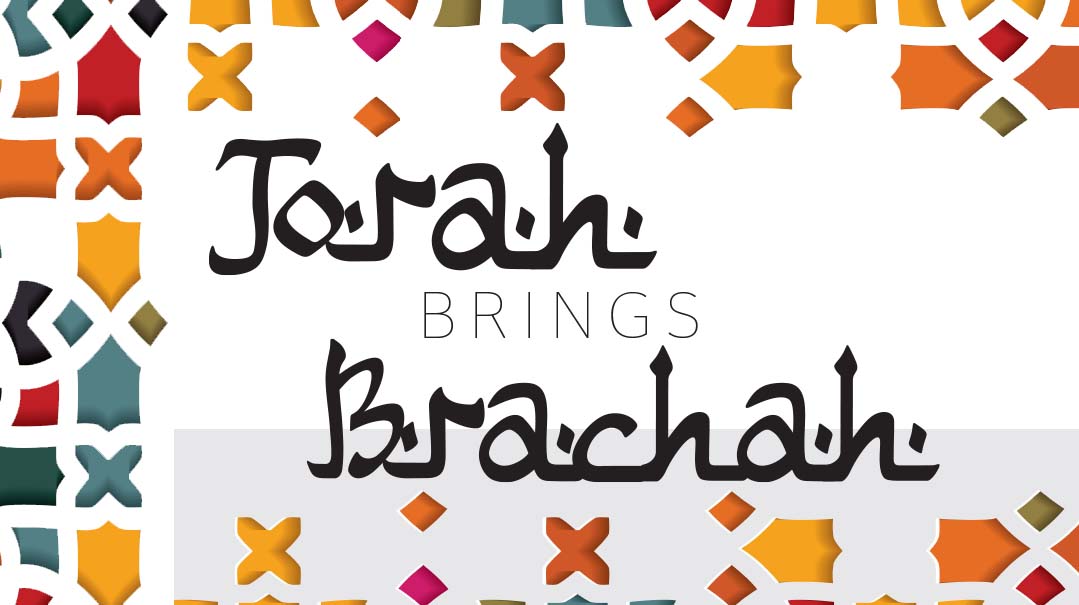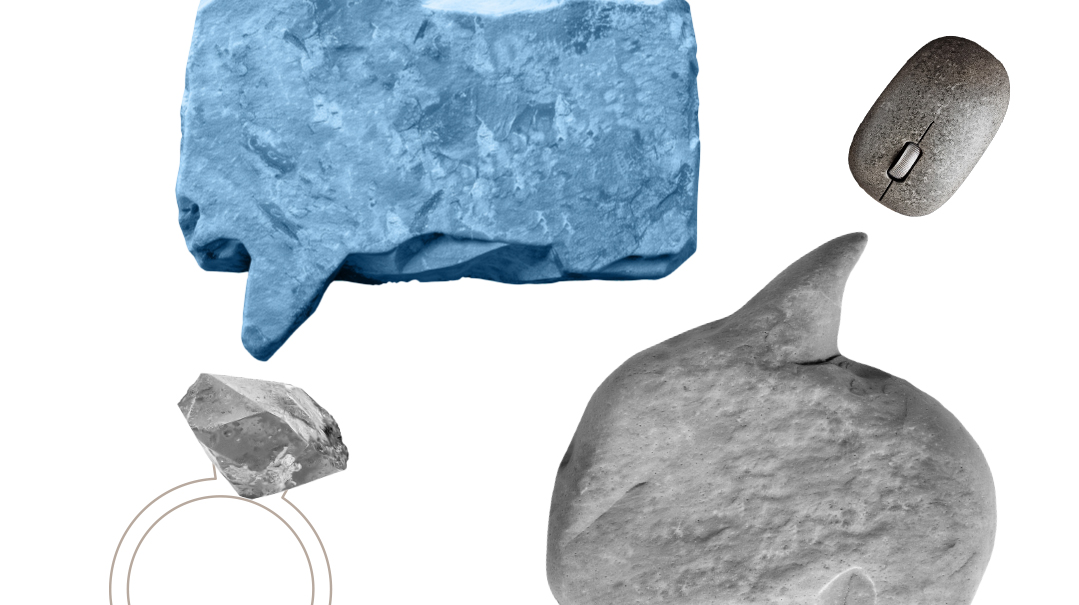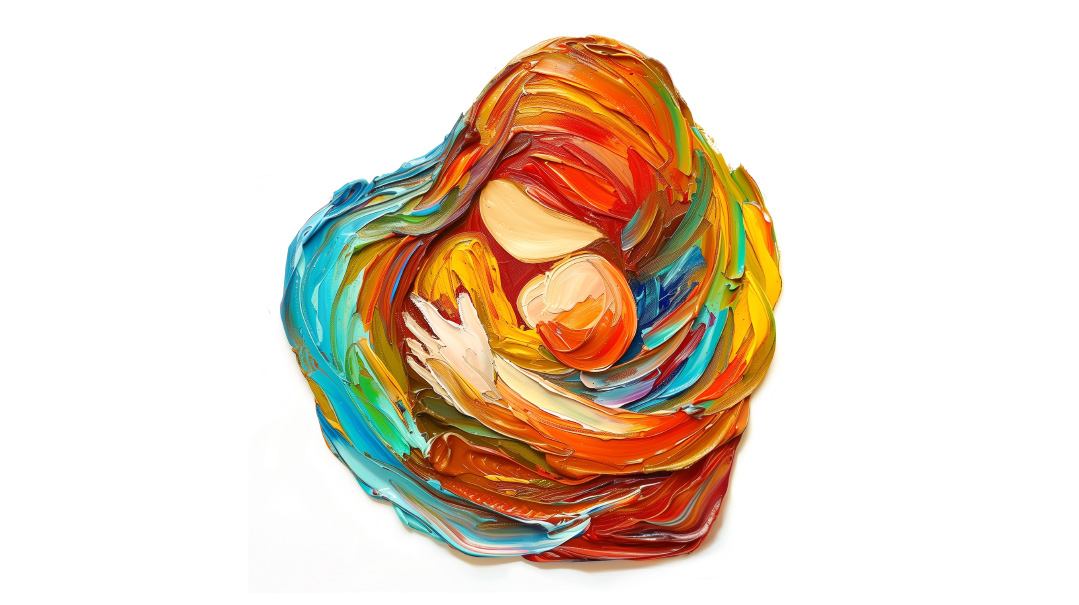Torah Brings Brachah
| December 21, 2021For decades, Rabbanit Dvora Zarbiv has clothed hundreds of Jerusalem’s poorest

“My mother loved Torah so much. When she was a young girl, her mother would send her on small errands, and it would take her a long time to come back. When her mother would ask her what had taken so long, she’d answer, ‘On the way to the makolet, I passed a beit medrash and heard the sounds of learning. I couldn’t resist, I had to stay and listen.’ ” I’m sitting with Rabbanit Dvora Zarbiv, daughter of the illustrious Rav Eliyahu Abba Shaul ztz”l and sister of Rav Ben Tzion Abba Shaul ztz”l.
We’re at her kitchen table. She offers me a hot drink, a cold drink, and everything in between. Then she shares her story, a story of the three pillars of the universe — homes built upon Torah, tefillah, and chesed.
“I’ll Learn Now”
Rabbanit Zarbiv’s mother, Geveret Benaya Levy, came from a long line of great Torah personalities. When she met the Rabbanit’s father, Rav Eliyahu Abba Shaul, an immigrant from Persia, she asked him if he learned Torah. He told her he didn’t; he’d just been released from serving in the Turkish army. “But I promise you, I’ll begin to learn seriously now,” he said. At 15, Benaya married 22-year-old Eliyahu.
He worked by day as a shoemaker to support his family, and like he promised his young bride, sat and learned from the evening until midnight every single day. Geveret Benaya had no fridge, no washing machine, and 14 children, yet she did everything herself, not wanting to take a moment away from her husband’s learning.
“Torah was everything to my mother and worth every effort. She never sent my brothers to the makolet lest they waste a moment of their learning. My brother Chacham Yitzchak liked to drink his coffee cold. My mother woke up extra early to make his coffee for him and allow it time to cool off, so he wouldn’t miss any learning time waiting for it to cool down.”
Her mother brought many chumrot into the house. As the years passed, and Rav Eliyahu became a talmid chacham in his own right, he introduced more chumrot. “We had so many chumrot in our house, so many chumrot,” the Rabbanit says, but should you think it was an imposition, her smile makes it clear it wasn’t at all. It was an extension of the feeling in the house — Torah is so precious, we want to learn as much as we can, and we don’t want to come close to violating it.
They were scrupulous about checking for bugs. “There were no Gush Katif products back then, of course, so we never had green leafy vegetables, with the exception of green cabbage, which according to the opinion of the Ben Ish Chai was fine,” says the Rabbanit.
She relates how as a child, when grapes were in season in the summer, her mother would boil grape juice in a special pot, using a new container of paraffin and a clean wick on the kerosene stove until it cooked down to a thick syrup. This would be put away for Pesach, and was the only thing her family used as a sweetener during the chag.
At the time, many people used date syrup to sweeten things on Pesach, but because of the possibility that the dates had been in contact with chometz, her family had a minhag not to use dates on Pesach.
“Did you ever hear of anyone who didn’t use dates on Pesach?” she asks me.
When I confirm that at least to me, dates are synonymous with Pesach, she nods. “They are. For most people.” She reiterates, “We had so many chumrot.” And she smiles. Her father may have been a shoemaker, “But he was a holy man. There was not a word of lashon hara spoken in his shop; there was a break every day for Minchah for all the workers. He paid his workers every week on time, and if he didn’t have the money, which was often, he’d borrow money from a neighbor. He’d tell the neighbor, ‘You know I’m an honest man. I’ll pay you back, but I can’t pay my workers late.’ ”
A customer once came to the shop and asked how much it was to order a pair of shoes. “My father told him, ‘It’s four and a half grushim for a custom order, and four off the shelf.’ The man gave his order, but when he came to pick up the shoes, my father charged him only four grushim. ‘But you told me it would be four and half,’ said the man.
“ ‘When I told you that price, I had in mind to use a certain type of leather, but I couldn’t get it and had to use another type, so I’m charging you less,’ my father explained.”
One of the Abba Shauls’ neighbors ran a vegetable store. The Rav from the Rabbanut who came to take terumot and maasrot didn’t show up one day. The neighbor wasn’t able to sell any produce, and his customers were waiting around, unable to buy anything. “So my father separated the terumot and maasrot. When the Rav in charge, Rav Alfandari — a great, well-known rav — heard what my father had done, he was very upset. He tested my father on all of the relevant halachot and was surprised by his extensive knowledge. Very impressed, he gave my father semichah on the spot! Until the end of his life, that semichah certificate remained one of my father’s most prized possessions.”
When Rabbanit Zarbiv was growing up, all family smachot were held at home. Her parents made their tiny kitchen even smaller by putting in an extra doorway into the house so there would be a separate entrance for men and women. “After that, there was barely room for two people in the kitchen at the same time, but it was worth it,” the Rabbanit says.
Brothers to Admire
“The stories about my brother are endless. When my brother was seven years old, the famous gadol, Rav Avraham Yitzchak Kook ztz”l, came to Rav Ben Tzion’s Talmud Torah to visit and tested some of the children. After testing my brother, he said, ‘This boy is going to be a gadol hador when he grows up.’ Later in life, whenever the story was retold, my brother would sigh and say sadly, ‘Lo zachiti — I didn’t merit it.’ ”
Once a man came to Rav Ben Tzion for advice. The doctors had said his son needed invasive surgery, which he was reluctant to go through with. He wanted to know what he should do. Rav Ben Tzion instructed the man to ask the doctors what were the odds of the boy recovering with and without surgery. The man reported back that his son’s odds of recovery without surgery were only 1 percent, and 100 percent with it.
“In that case,” Rav Ben Tzion said, “you don’t have to do the surgery. Tefillah raises the chances of recovery to 50 percent, so together with the 1 percent chance he’ll recover, it’s 51 percent. That’s enough of a chance to rely on.” The Rav davened for the boy, and at the next doctor’s visit, tests showed that the problem had corrected itself and the boy didn’t require surgery.
“When I was a 17-year-old girl, I took my brother’s shoes to polish one Erev Shabbos, but my brother stopped me. ‘Why ever not? It’s Erev Shabbat! We always polish everyone’s shoes on Erev Shabbat,’ I protested.
“But my brother persisted. ‘You can’t polish my shoes. What if one day you’re married to a dayan?’ It was several years later, in 1920, that I married my husband, Emanuel Zarbiv, and a few decades before he would become a dayan, but somehow my brother knew I had the potential when I was only 17,” explains the Rabbanit.
While Rav Zarbiv ztz”l became a dayan, Rav Ben Tzion turned down the position. “A dayan makes a decent parnassah, and my brother was worried about his children’s yerushah. According to halachah, only boys inherit from the father. The Rabbanut circumvents the problem by having the boys receive their father’s yerushah, and then the boys give their sisters a ‘gift.’ That way, all the children have a portion in the father’s inheritance, girls included. My brother didn’t want to rely on this heter and chose instead to live in poverty so there’d be no yerushah to pass on.
“There are so many stories about my brother. I couldn’t possibly tell them all,” the Rabbanit says. And with that, she’s finally ready to share with me a bit about herself and the gemach that filled her house for decades, clothing the poorest families in Yerushalayim.
Half a Century of Chesed
“I married a ben Torah, an avreich, and when one of my daughters was born unwell and needed constant care, I stopped working. There was never very much money in the house, but we managed. Clothing was more expensive then than it is today.
“My older sister would give me her children’s old clothing. I would take it apart and wash the fabric and then sew new clothing for my children. Once I got a shipment of clothing from the United States. There was more clothing than I needed, so I found other people who could use it and gave it to them.”
Once the Rabbanit was giving out clothing regularly, people started to bring her their old clothes to distribute. The Rabbanit sorted the clothing she got, dividing the styles by demographic. She clothed hundreds of poor families for two decades. About five years ago, the Rabbanit had to give up the clothing gemach, but continues to work tirelessly for Jerusalem’s poor.
“I grew up in a very poor family. I know what it is not to have. I know how hard I worked to make nice clothing for my children out of the fabric I recycled from my sister. My heart went out to families who couldn’t afford to clothe their children, and I helped in any way I could.”
“When my mother-in-law passed away, a very poor woman asked me if my mother-in-law had clothing she could have. ‘But my mother-in-law was a very large woman, and you’re quite thin. How can you wear her clothes?’ I said to her. The very next day, a slim woman dropped off a bag of clothing she wasn’t using anymore, and I was able to pass it on.”
The Rabbanit tells me she has an endless number of stories of people needing something, and as soon as they asked her for it, it would show up at her door.
“A bakashah is a kind of tefillah. Just by opening your mouth to say that you need something sends a message to Hashem, Who hears and responds. Once, a man wanted a light-colored pair of pants, and I didn’t have any. The next bag I opened had a pair. This sort of thing happened over and over again, more times than I could count.”
When the Rabbanit found out that a student of hers didn’t have a refrigerator, she managed to get one for her. When they didn’t have beds, she arranged for that, too. There are numerous families and individuals who have no way to support themselves, and the Rabbanit has been helping them for years. Some are families with a mentally ill parent; others are individuals on dialysis or who are physically handicapped. Every single month these people show up at her door to pick up the envelopes the Rabbanit prepares for them.
The people she helps have become so much like family that a few years ago, when her children prepared a photo album of the entire family for her and her husband a”h in honor of their 50th wedding anniversary, they included pictures of these families as well.
“When people want to help, they know I know the people who really need it, and they bring me money,” explains the Rabbanit. Thanks to this generosity, the Rabbanit manages to provide countless families with envelopes of money every month.
Inevitably, when the Rabbanit was sorting through the clothing she received for her gemach, there were things too worn for anyone to use. Rather than let it go to waste, those piles of shmattehs lead to another branch on the Rabbanit’s tree of chesed. A company would come every few weeks to pick up these worn things for recycling. They didn’t pay, but they’d give the Rabbanit a new set of linen as a thank-you each time they came.
That linen became a gemach as well. The Rabbanit would save the linen to give to needy kallahs. Those original gifts of linen were the impetus for a new double chesed she now runs. She still provides needy kallahs with linens, but today, they no longer come from a recycling company; they’re donated by older single girls. In return, the kallahs daven for the singles on the day of their wedding.
As we finish speaking, the Rabbanit shows me the pictures on her wall; her husband Rav Zarbiv, who passed away a few years ago, her mother, her mother’s parents, her father, and her illustrious brother — all holy-looking Jews.
The Rabbanit brings me back to her kitchen table, insisting that I can’t leave without making a brachah. We sit for a few more minutes, and she asks about my own family.
When I stand up to leave, the Rabbanit showers me with brachahs, and I can tell she really means them. We began our conversation discussing Torah, and the Rabbanit is sending me off with brachahs — just like the Rabbanit has been telling me: Torah always leads to brachahs.
(Originally featured in Family First, Issue 773)
Oops! We could not locate your form.






